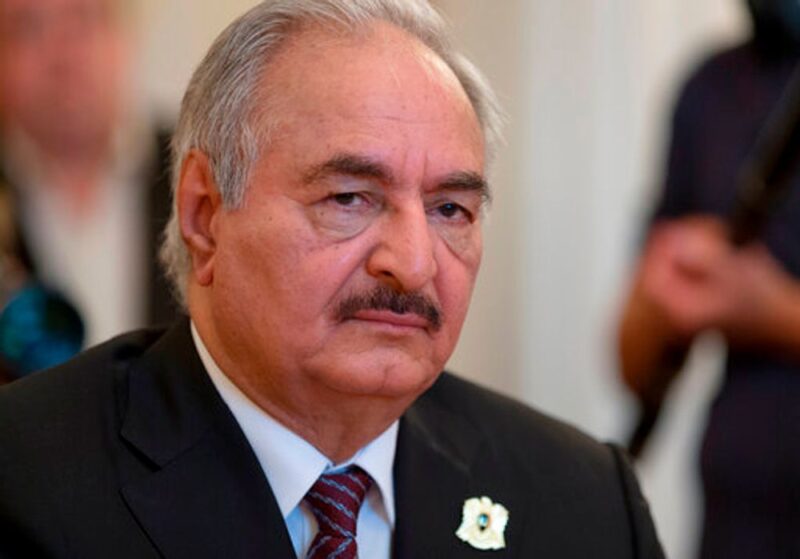Can Haftar give Russia what Assad couldn’t?
West watches as Putin seeks new Mediterranean foothold after Assad's sudden fall

Russia is racing to salvage what it can from a strategic nightmare. With its longstanding ally Bashar al-Assad ousted from power in Syria on 8 December, Moscow is now betting heavily on Libya as its new foothold in the region – but it’s discovering that nothing in the Middle East is ever straightforward.
The stakes couldn’t be higher for Russia. Its prized military bases on Syria’s Mediterranean coast – vital launching pads for operations stretching from the Middle East deep into Africa – are now in the balance. Whilst Syria’s new leader, Ahmed al-Sharaa, is making friendly overtures about wanting Russia to stay, calling it “an important country” and insisting “we do not want Russia to leave Syria in the way that some wish”, the Kremlin isn’t taking any chances.
“Think of it as Russia’s survival instinct kicking in”, says Jalel Harchaoui, who monitors the region closely at London’s Royal United Services Institute (RUSI). “They’re desperately trying to shore up their position in Libya to make up for what they’re losing in Syria.”
A Hurried Build-up
The signs of Russia’s pivot to Libya are everywhere. Russian forces are backing Field Marshal Khalifa Haftar, who controls eastern Libya, in his stand-off against the UN-recognised Government of National Unity (GNU) in Tripoli. The Swiss investigative consortium “All Eyes on Wagner” has tracked Russian activities at about ten locations across Libya, with military equipment deliveries to the port of Tobruk documented in February and April of last year.
The numbers tell the story: Russian troops in Libya jumped from 800 in February 2024 to 1,800 by May. Ukrainian intelligence added to the picture on 3 January, claiming Moscow planned “to use Sparta and Sparta II cargo ships to transport military equipment and weapons” to Libya.
Perhaps most telling was an 18 December Wall Street Journal report, citing Libyan and American officials, that caught Russia moving some of its most advanced air defence systems – including S-300 and S-400 missiles – from Syria to Libya. Since Assad’s fall, according to Harchaoui, “a notable volume of Russian military resources has been shipped to Libya from Belarus and Russia” alongside troop transfers.
Not Like Syria
But Russia is quickly learning that Libya isn’t Syria mark two. “Syria was perfect for them”, explains Ulf Laessing, who runs the Sahel programme at the Konrad Adenauer Foundation from Bamako. “No Western diplomats poking about, no journalists asking questions – they could do whatever they wanted. Libya’s different. Everything happens in the open there.”
The political labyrinth in Libya is also far more complex than what Russia dealt with in Syria. Turkey backs the GNU in Tripoli, whilst Egypt and the United Arab Emirates maintain ties with Haftar. Even Turkey has been warming to Haftar lately, exploring business deals and diplomatic ties.
Washington’s Warning Signs
The Americans aren’t sitting idle either. Multiple sources confirm they’ve been trying to convince Haftar not to let Russia set up a permanent base in Tobruk – something Moscow has coveted since 2023.
“Russia isn’t just swapping one friend for another”, explains Emadeddin Badi at the Atlantic Council. “They’re trying to keep their strategy alive. Just as Assad gave them a platform to challenge NATO and test their military kit, they see Haftar as their ticket to disrupting Western influence and expanding their reach into Africa.”
Learning the Hard Way
Even some Russian voices are calling for a more nuanced approach this time round. “We can’t make the same mistake we made in Syria, putting all our chips on one strongman without a backup plan”, warns Vlad Shlepchenko, who writes for the pro-Kremlin outlet Tsargrad.
Libya has been split in two since NATO helped topple Muammar Gaddafi in February 2011, and the situation remains fraught. The Tripoli government and Italy, Libya’s former colonial power, have expressed serious concerns about Russian movements, which both the European Union and NATO are watching closely.
“Russia’s going to find out there are limits to what they can pull off in Libya”, Laessing notes. It’s a sobering reality check for a power that’s learning the hard way: in today’s Middle East, nothing comes easily – not even for Russia.
How to submit an Op-Ed: Libyan Express accepts opinion articles on a wide range of topics. Submissions may be sent to oped@libyanexpress.com. Please include ‘Op-Ed’ in the subject line.
- Can Haftar give Russia what Assad couldn’t? - January 12, 2025
- Aguila Stakes Future on Bold Peace Initiative - January 12, 2025
- SSA seizes major drug haul, arrests Libyan suspect - January 12, 2025


